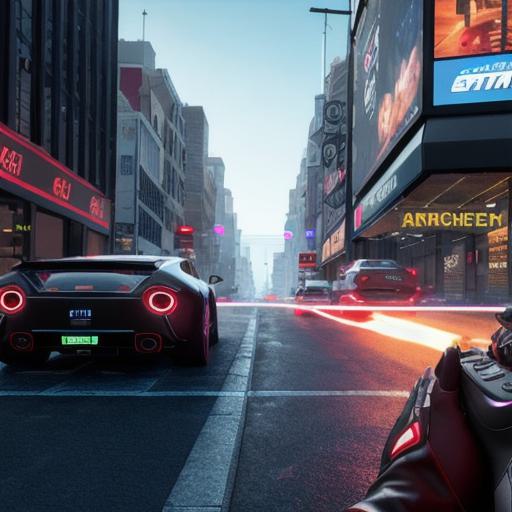Gaming has come a long way since its humble beginnings as simple pixelated arcades in the 1980s. Today, we see immersive virtual reality (VR) experiences, realistic graphics, and complex narratives that rival those of traditional media. But with every innovation, there comes a new set of challenges for game developers to overcome.
One such challenge is the need to create a secure and trustworthy gaming experience for players. This has led to the development of blockchain technology, which offers an immutable and transparent way to record and verify transactions on a distributed ledger. In this article, we’ll explore how blockchain is revolutionizing the gaming industry by enabling new forms of ownership, currency, and gameplay mechanics.
Ownership and Ownership Transfer
Blockchain technology offers a unique solution for game developers looking to enable ownership and transfer of in-game assets. By using smart contracts, developers can create immutable records of ownership that cannot be tampered with or duplicated. This allows players to own and trade virtual goods securely and transparently, without the need for intermediaries such as digital stores or game publishers.
For example, the popular blockchain-based game CryptoKitties allows players to buy, sell, and breed unique digital cats that are stored on a blockchain. Each cat is assigned a unique identifier that can be traded on online marketplaces, creating a new form of collectible that is both rare and valuable.

Currencies and Microtransactions
Blockchain technology also enables the creation of new forms of in-game currency that can be used to purchase goods and services within the game. These currencies are often based on cryptocurrencies like Bitcoin, which offer a level of anonymity and security that is unparalleled by traditional payment methods.
Microtransactions have become increasingly popular in gaming, allowing players to purchase small items or advantages with real money. Blockchain technology offers a way to make these transactions secure and transparent, without the need for intermediaries such as credit card processors or digital wallets.
For example, the blockchain-based game Decentraland allows players to buy and sell virtual land using a unique cryptocurrency called Mana. This creates a new form of real estate that is both scarce and valuable, allowing players to create and monetize their own games or experiences within the platform.
Gameplay Mechanics and Economies
Blockchain technology also offers new gameplay mechanics and economies that are not possible with traditional gaming models. For example, blockchain-based games can incorporate decentralized autonomous organizations (DAOs) that allow players to vote on game rules and decisions. This creates a more democratic and player-driven gameplay experience, which can lead to greater engagement and loyalty.
Another example is the use of non-fungible tokens (NFTs), which are unique digital assets that can be bought, sold, and traded on a blockchain. NFTs can represent anything from in-game items to collectibles to artwork, creating new forms of ownership and value that were not possible before.
In conclusion, blockchain technology is revolutionizing the gaming industry by enabling new forms of ownership, currency, and gameplay mechanics. By using smart contracts and decentralized systems, developers can create more secure, transparent, and player-driven gaming experiences that are both innovative and engaging. As the world continues to adopt blockchain technology, we can expect to see even more exciting developments in the gaming industry in the years to come.
